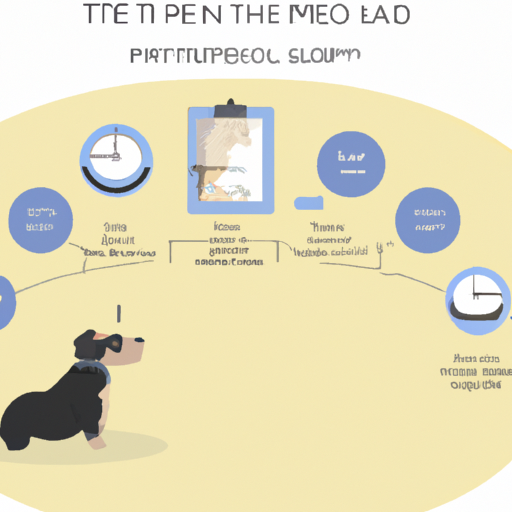As a dutiful caregiver, you’re always on the lookout for your pet’s wellbeing. When your canine companion experiences digestive discomfort, it’s natural to seek fast and effective solutions. One of these potential solutions is Pepcid. Today, we’re going to dive deep into understanding this drug and how long it takes to work in dogs.
Understanding Pepcid
Pepcid, or Famotidine, is a common medication given to dogs to help combat stomach acid-related issues. It’s an H2 blocker that works by reducing the production of stomach acid. This can help alleviate conditions such as acid reflux, gastritis and stomach ulcers.
Administering Pepcid to Your Dog
Before giving Pepcid to your dog, it’s vital to consult with a veterinarian. They can provide accurate dosage information based on your dog’s weight, age, and overall health condition. Once you have the green light:
- Give Pepcid to your dog orally, either with food or on an empty stomach.
- Follow the veterinarian’s dosage instructions carefully.
- Monitor your dog for any adverse reactions.
The Time Frame: How Long Does Pepcid Take to Work?
Pepcid typically begins to work within 30 minutes to 2 hours after administration. However, the visible effects on your dog’s condition may take a bit longer to notice. Here’s a general timeline:
| Time Frame | Expected Result |
|---|---|
| 30 minutes – 2 hours | Pepcid begins to work, reducing stomach acid production |
| 24 – 48 hours | Visible improvements in your dog’s condition, depending on severity |
Potential Side Effects of Pepcid in Dogs
While Pepcid is generally safe for dogs, potential side effects may occur. These include:
- Loss of appetite
- Vomiting
- Diarrhea
- Lethargy
If you notice these or any other concerning symptoms, contact your vet immediately.
Long-Term Use of Pepcid
For chronic conditions, your dog may require long-term use of Pepcid. In such cases, it’s crucial to have regular veterinarian check-ups to monitor your dog’s condition and adjust the dosage if necessary. Remember, long-term use should always be under the guidance of a professional.
Frequently Asked Questions
Q: Can I give my dog Pepcid without consulting a vet?
A: No, always consult a vet before administering any medication to your dog.
Q: What if my dog accidentally takes more Pepcid than prescribed?
A: Contact your vet or an emergency pet hospital immediately.
Q: Are there any alternatives to Pepcid for dogs?
A: Yes, there are other medications for stomach issues. Your vet can provide the best advice based on your dog’s specific needs.
Q: Can I give Pepcid to my puppy?
A: Only under the guidance of a vet. Puppies may require a different dosage or medication.
Remember, as a caregiver, your vigilance and care make all the difference in your pet’s wellbeing. As you navigate your dog’s health journey, trust your instincts, rely on professional advice, and shower your canine companion with love and care.



